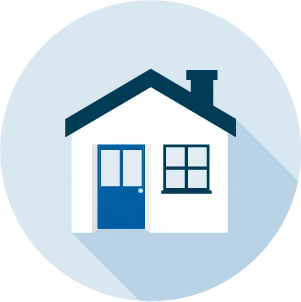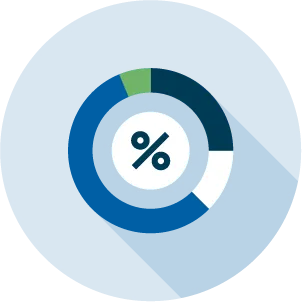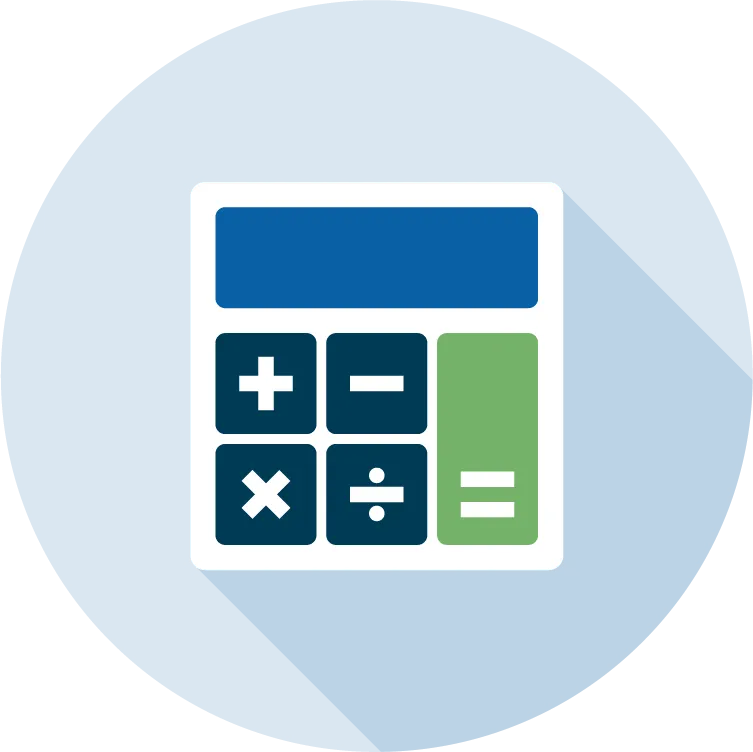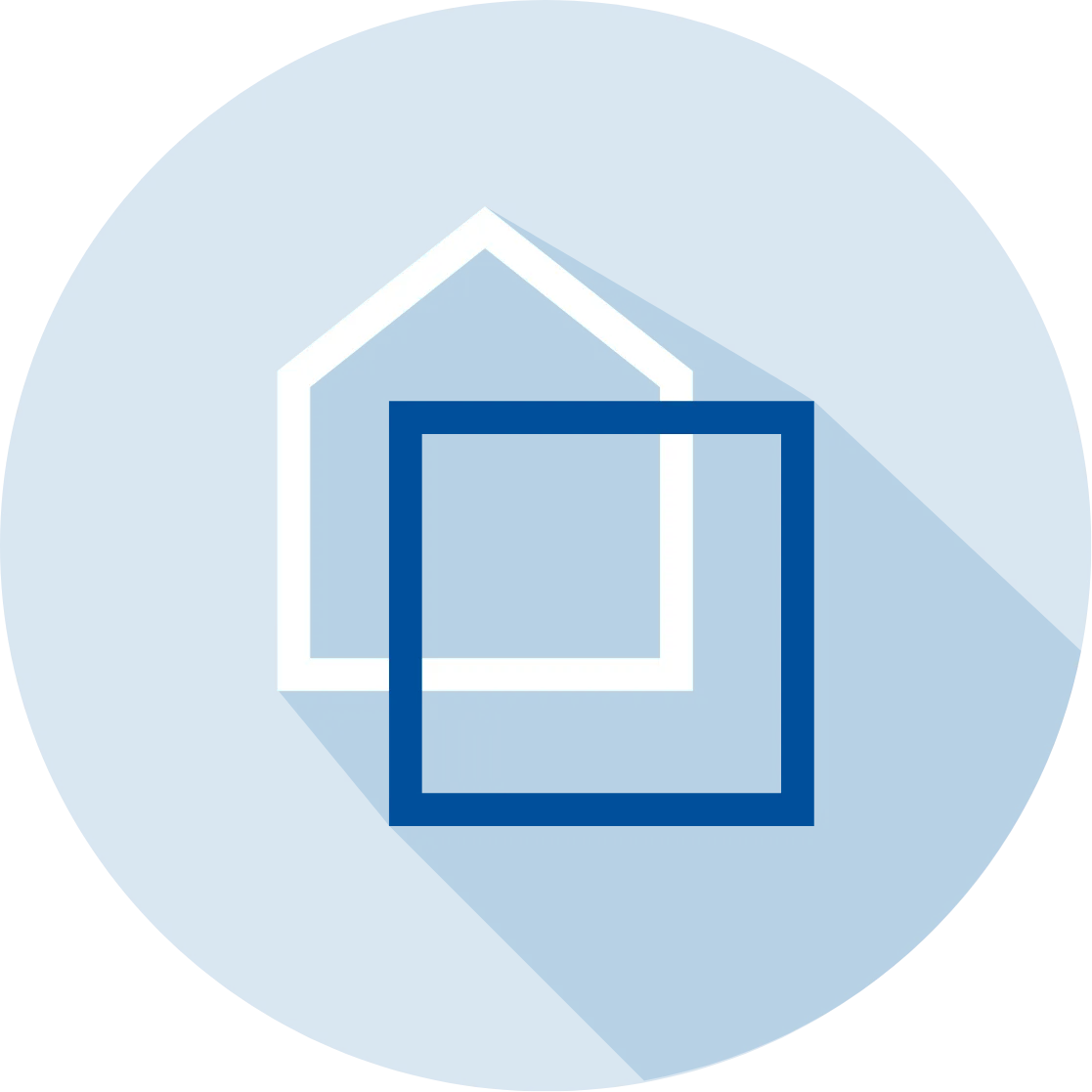

Compare Today's Mortgage Rates
Looking for something a bit more personal? There are two ways to get a quote.
Compare today's mortgage rates
Est. Monthly Payment
Prequalify chevron_right
5.625% RATE
6.615% APR
$2,258/mo
infoPrequalify chevron_right
6.375% RATE
6.740% APR
$2,246/mo
infoPrequalify chevron_right
5.625% RATE
6.235% APR
$2,965/mo
infoPrequalify chevron_right
5.375% RATE
6.011% APR
$2,041/mo
infoPrequalify chevron_right
5.990% RATE
6.729% APR
$2,156/mo
infoLast updated - December 07 2025 4:15pm EST.The table is updated twice every day with the current mortgage rates

Learn more about Mortgage Rates with our free mortgage rate e-series
mortgage rates FAQ
what is a mortgage rate?
We want to lend you money, but we also need to pay the (awesome) people who make it happen.
That’s where charging interest comes in. For any loan you take out these days, be it auto, business, or mortgage, the lender will charge a percent of the loan amount for the use of their money. That number is your interest rate.
Each time you make a monthly payment, a portion of that payment goes to cover your principal—or the loan amount—while the rest covers your mortgage interest rate. Most lenders front-load the interest payments, so that in the beginning of the term, a higher percentage of the payment goes toward interest. As the loan matures, you’ll pay more and more principal.
why do interest rates fluctuate?
This is a complicated question—and it comes with a complicated answer.
The housing market is the backbone of the American economy, but it’s also dependent on it. As the economy dips and climbs, so do rates. Inflation, the state of the secondary mortgage market, the cost of consumer goods, and dozens of other factors all come into play here. This means that today’s mortgage rates may be different from those you’ve seen in the past or may see in the future.
There isn’t just one interest rate at any given time, though. The rate we’ll offer you may be slightly higher or lower than the rates you see advertised, since we have to account for all the variables that make your situation unique.
how do you come up with my interest rate?
A good rule of thumb? The riskier the loan seems for the lender, the higher the rate will be. In layman’s terms, a higher rate is how lenders hedge their bets, protecting their interests along with the interests of the housing market at large.
If your rate ends up higher than you assumed, remember: it’s nothing against you. We believe in our borrowers, but lenders like us didn’t survive the housing crisis to start skirting responsible lending practices now.
Okay, let’s get specific. These are the major factors we’ll use to calculate your personal rate:
- The loan type
- Your credit score
- Your debt to income (or DTI) ratio
- The value of the property compared to the loan amount
- The down payment amount
- The property location
- Whether or not the property will be your primary residence
can my rate go up?
Depends. When you’re in the process of buying a house or refinancing, you’ll be offered opportunities to lock your rate. For a fee, this freezes your quoted mortgage rate for a set period of time, during which you’re expected to get all your documents in order and close. Miss that window, and yes, your rate might go up to match current mortgage rate fluctuations.
If you’re wondering what happens to your rate after you close, though, that choice is up to you. Most borrowers opt for a fixed-rate loan, which is exactly what it sounds like—your interest rate stays the same for the life of the loan.
For those who live in the now, though, there’s another option called an adjustable rate mortgage, or an ARM. This loan begins with a super low interest rate that may increase or decrease in the future at pre-specified intervals.
Mortgage rates are volatile and subject to change without notice. All rates shown are for 30-day rate locks with two and a half points for a single family owner-occupied primary residence with 750 or higher FICO and 80 LTV over a 30-year loan term except where otherwise noted and are subject to mortgage approval with full documentation of income. The APR for a 30-year and 15-year conventional fixed-rate mortgage loans are calculated using a loan amount of $360,000, two and a half points, a $495 application fee, $450 appraisal fee, $1,195 underwriting fee, a $10 flood certification fee, and a $82 credit report fee.* 15-year conventional mortgage rates are calculated with a 15-year loan term.* The APR for jumbo mortgage rates is calculated using a loan amount of $500,000, two and a half points, a $495 application fee, $450 appraisal fee, $1,195 underwriting fee, $10 flood certification fee, and a $82 credit report fee.* The APR for FHA mortgage rates is calculated using a loan amount of $360,000, two and a half points, a $495 application fee, $450 appraisal fee, $1,195 underwriting fee, $10 flood certification fee, and a $82 credit report fee. Some rates and fees may vary by state.* The APR for adjustable rate mortgages (ARMs) is calculated using a loan amount of $360,000, two and a half points, a $495 application fee, $450 appraisal fee, $1,195 underwriting fee, $10 flood certification fee and a $82 credit report fee. Some rates and fees may vary by state. Products are subject to availability on a state-by-state basis. By refinancing your existing loan, your total finance charge may be higher over the life of the loan.
Check out our other locations
Alabama , Arizona , Arkansas , California , Colorado , Connecticut , Delaware , District of Columbia , Florida , Georgia , Illinois , Indiana , Iowa , Kansas , Kentucky , Louisiana , Maine , Montana , Nebraska , Nevada , New Hampshire , New Jersey , New Mexico , New York , North Carolina , North Dakota , Ohio , Oklahoma , Oregon , Maryland , Massachusetts , Michigan , Minnesota , Mississippi , Pennsylvania , Rhode Island , South Carolina , South Dakota , Tennessee , Texas , Vermont , Virginia , Washington , West Virginia , Wisconsin , Wyoming , Guam










